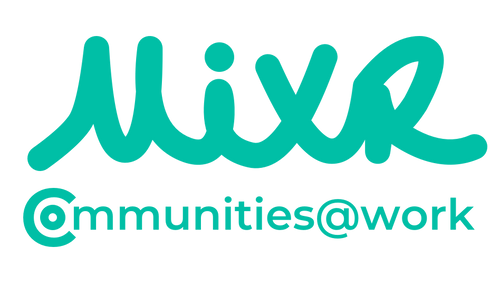
Chances are, most of us have felt overwhelmed or stretched too thin at work. Stress was a mere fact of professional life even before 2020, but it has become rampant in the last year or so. Since the beginning of the pandemic, millions of people have lost their jobs and many of those lucky enough to still have their jobs have converted their living spaces to full time remote offices - as much as a third of U.S. employees, says Harvard Business Review. As a result, stress levels are higher than ever and burnout has become a problem that can no longer be ignored.
According to CNBC, over two thirds of employees experienced burnout as a result of remote work in 2020. Burnout is characterized by feelings of exhaustion, inefficacy and lack of achievement. It has been linked to countless health problems and can cause people to distance themselves at work and jeopardize career prospects. We often discuss how organizations are responsible for their employees’ well-being - and, this is no different. Not only is reducing burnout the right thing to do, but it is also essential for engaging and retaining top talent (Gallup). Here are some key changes organizations can make to prevent burnout at work and promote the well-being of their employees.
Provide autonomy & trust your people
Many job seekers look for positions that allow for a certain level of autonomy. Studies have shown that job autonomy, defined as having flexibility and control over how work gets done, is a key performance and happiness driver (Forbes). Empowering employees to have more freedom in their day to day life at work requires maintaining a high-trust work environment. Trust is a two-way street. Not only do managers need to trust their people to do their best work, but people need to trust in their managers to be transparent and communicate clear expectations. Organizations should always keep their people up to date on things that are changing, and also things that are not. Reinforcing some level of normalcy reduces uncertainty and creates a much needed sense of stability in today’s ever shifting climate. When your employees have the flexibility to discover their ideal working conditions, well-being and engagement will blossom, which in turn can alleviate burnout. According to Gallup, employees are 43% less likely to experience burnout when they have some choice in how and when they work.
Make well-being a core component of your culture
Culture is one of the main aspects of Employee Experience and dictates how employees will act and interact at work. An organization looking to prevent burnout must make well-being a key component of its culture. Provide your people with resources to live happier lives and seek support when needed. Even leading companies such as Starbucks and PwC are boosting mental health benefits so employees don’t feel isolated, lonely or overwhelmed during the Covid-19 crisis. According to Insider, these include changes in employee assistance programs, discounts on mental health apps and more non-work related virtual experiences. Prioritizing well-being must be looked at as a business imperative, rather than a “nice to have” HR feature. Leaders should be aligned on why a culture of well-being matters, and clearly communicate its purpose to others throughout the organization. Furthermore, team members should be encouraged to celebrate well-being achievements and make the topic a part of regular discussions at work.
Promote interpersonal & casual connection
According to Harvard Business Review, one of the best antidotes to burnout is seeking out rich interpersonal interactions. Although remote work has made it slightly more challenging to connect with colleagues in-person, community-building platforms, like MixR, make it simple to build meaningful connections at work. MixR’s unique algorithm connects individuals who share similar interests and is the perfect place for employees to find support, care and interpersonal connection. These interactions happen in a safe and secure environment, as trust needs safety and privacy in order to blossom. With the shift to remote work, employees are also experiencing high levels of loneliness (a key cause of burnout). This suggests that human connection can make a huge impact on making people feel less lonely, and in turn, less burned out at work. Organizations should look to increase opportunities for their people to find human connection, and encourage them to build communities that foster a sense of belonging, empathy and inclusion.
Employee burnout is costly for both an organization and its people. In order to avoid declines in personal and organizational performance, it must not be ignored, and leaders must take concrete steps to improve their workplaces. To learn more about how MixR can fit into the equation, feel free to connect with us.







